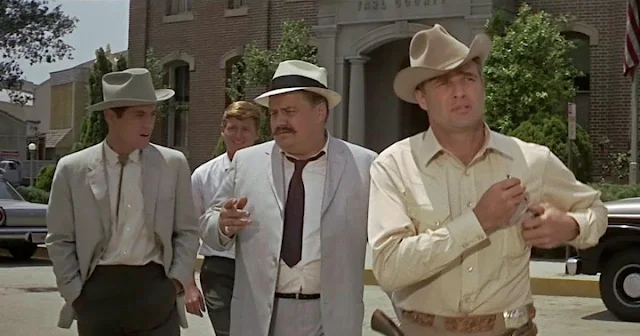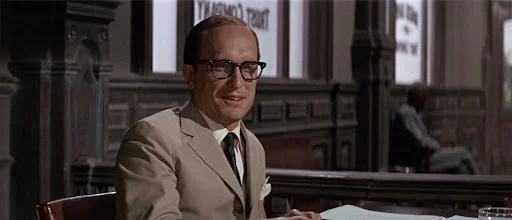A blog formerly known as Bookishness / By Charles Matthews
"Dazzled by so many and such marvelous inventions, the people of Macondo ... became indignant over the living images that the prosperous merchant Bruno Crespi projected in the theater with the lion-head ticket windows, for a character who had died and was buried in one film and for whose misfortune tears had been shed would reappear alive and transformed into an Arab in the next one. The audience, who had paid two cents apiece to share the difficulties of the actors, would not tolerate that outlandish fraud and they broke up the seats. The mayor, at the urging of Bruno Crespi, explained in a proclamation that the cinema was a machine of illusions that did not merit the emotional outbursts of the audience. With that discouraging explanation many ... decided not to return to the movies, considering that they already had too many troubles of their own to weep over the acted-out misfortunes of imaginary beings."--Gabriel García Márquez, One Hundred Years of Solitude
Search This Blog
Wednesday, January 22, 2025
The Killers (Don Siegel, 1964)
Cast: Lee Marvin, John Cassavetes, Angie Dickinson, Ronald Reagan, Clu Gulager, Claude Akins, Norman Fell. Screenplay: Gene L. Coon, based on a story by Ernest Hemingway. Cinematography: Richard L. Rawlings. Art direction: Frank Arrigo, George B. Chan. Film editing: Richard Belding. Music: John Williams.
Friday, July 26, 2024
The Chase (Arthur Penn, 1966)
Bad movies are often fun to watch anyway, and most of the people involved with The Chase, including director Arthur Penn, screenwriter Lillian Hellman, and star Marlon Brando, agreed that it was a bad movie. Brando let his opinion show, giving a sluggish performance that validates the old criticism that he mumbled his lines. Hellman had her script taken away and rewritten, and Penn struggled to deal with an ill-conceived project. The chief interest the film generates today is seeing actors like Jane Fonda, Robert Redford, and Robert Duvall on the brink of major stardom. There's a good deal of miscasting, including E.G. Mashall as the boss of a small town that seems to be in Texas or Louisiana. Marshall lacks the ruthless aura that the character needs. Angie Dickinson is wasted as the loving and dutiful wife of the town sheriff played by Brando. And Redford feels out of place in the role of Bubber Reeves, the town bad boy who escapes from prison (it's never quite clear what he did to be sent there) and stirs a manhunt, a lynch mob, and a conflagration in a junkyard. The town itself is a hotbed where everyone sleeps with everyone else's spouse and goes orgiastic on the Saturday night when the news of Bubber's escape breaks. It's a silly and lurid movie, but a little too long to be entertainingly bad.
Tuesday, August 8, 2017
Point Blank (John Boorman, 1967)
 |
| Angie Dickinson and Lee Marvin in Point Blank |
Chris: Angie Dickinson
Mal Reese: John Vernon
Lynne: Sharon Acker
Yost: Keenan Wynn
Brewster: Carroll O'Connor
Frederick Carter: Lloyd Bochner
Stegman: Michael Strong
Hit Man: James Sikking
Director: John Boorman
Screenplay: Alexander Jacobs, David Newhouse, Rafe Newhouse
Based on a novel by Donald E. Westlake (as Richard Stark)
Cinematography: Philip H. Lathrop
Art direction: Albert Brenner, George W. Davis
Music: Johnny Mandel
Film editing: Henry Berman
Stoner noir. With its non-linear storytelling and audaciously post-realist tricks of style, Point Blank clearly shows the influence of the great French and Italian filmmakers of the 1960s, but even though its director was a Brit whose only previous non-documentary film was Having a Wild Weekend (1965), an attempt to do for the Dave Clark Five what A Hard Day's Night (Richard Lester, 1963) did for the Beatles, it's unquestionably an American movie. Its loner antihero, Walker, is straight out of American Westerns, and the two cities it shifts between, San Francisco and Los Angeles, are the American final frontier. That any studio, let alone MGM, would allow John Boorman and Lee Marvin to make Point Blank what it is -- an eccentric spin on a familiar genre -- shows how the Hollywood studio system had imploded. It's a film full of outrageous moments: Walker bursting into Lynne's apartment and emptying his revolver into an unoccupied bed. Walker fastening his seat belt -- in the days before shoulder belts and mandated buckling up -- and embarking on a one-car demolition derby with Stegman in the passenger seat. Walker dumping a naked Reese from a penthouse balcony. Chris pummeling an immovable Walker with her purse and her fists before collapsing in exhaustion. It has showoffy tricks: The pock pock pock pock of Walker's heels as he strides down an airport corridor, a sound that's carried over even after he's left the hallway. The often psychedelic color effects, like Chris's day-glo wardrobe or the closeup of the multicolored perfumes in the bottles that have shattered in the bathtub after Walker swept them from the shelves. Its plot stretches credibility to the breaking point: How did Walker survive being shot at, yes, point blank range and then get away from Alcatraz? This alone has served as the focus of countless attempts at interpretation: Is Walker a ghost? Or is what happens after he's shot the revenge fantasy of a dying man? In short, Point Blank is a glorious mess, made into an enduring work of fascination and puzzlement by wonderful performances, particularly by Lee Marvin and Angie Dickinson. Is it a great film or just an enduring cult movie? I tend to the latter view, but it's bloody fun in either case.



.jpeg)



.jpeg)



.jpg)

.jpg)









